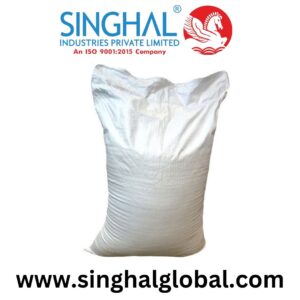Adenoviruses are a group of viruses that have gained significant attention in recent years, particularly in the fields of gene therapy, vaccine development, and cancer treatment. With their ability to deliver genetic material into cells effectively, adenoviruses serve as valuable vectors in various biomedical applications. To harness their potential, specialized adenovirus production services have emerged, catering to the increasing demand for high-quality viral vectors.
Understanding Adenovirus and Its Applications
Adenoviruses are non-enveloped, double-stranded DNA viruses. Their ability to infect a wide range of host cells makes them ideal candidates for gene transfer. Researchers and biotechnology companies utilize adenoviruses in several domains, including:
- Gene Therapy: Adenoviruses can be engineered to carry therapeutic genes into target cells, offering potential cures for genetic disorders and other diseases.
- Vaccine Development: Adenoviral vectors are exploring new vaccination strategies, notably in the development of vaccines against infectious diseases, including COVID-19.
- Cancer Treatment: By delivering genes that can induce cancer cell death or enhance the immune response against tumors, adenoviruses are part of innovative approaches in oncology.
The Adenovirus Production Process
Producing adenoviruses involves a series of carefully controlled steps to ensure the final product’s safety and effectiveness. The production process typically includes:
- Cell Line Development: A suitable cell line, often HEK293 cells, is chosen for the replication of the adenovirus. These cells provide the necessary machinery for viral assembly and propagation.
- Viral Vector Design: The desired genetic material is inserted into the adenoviral genome. This can involve modifying the virus to enhance its ability to infect specific cells or to reduce its pathogenicity.
- Viral Amplification: The engineered adenovirus is propagated in the chosen cell line, where it replicates and assembles into new viral particles.
- Purification: After amplification, the virus is harvested and purified to remove contaminants and isolate the viral particles. This step is crucial to ensure the safety and efficacy of the adenovirus for research and clinical applications.
- Quality Control: Rigorous testing is conducted to assess the purity, potency, and viral titer of the adenovirus. Quality control is essential to comply with regulatory standards and ensure the product’s reliability.
Benefits of Utilizing Adenovirus Production Services
Engaging professional adenovirus production services offers several advantages:
- Expertise and Experience: Specialized companies have the knowledge and expertise to handle complex production processes, optimizing yield and quality.
- Scalability: From small-scale research needs to large-scale clinical applications, these services can scale production according to project requirements.
- Regulatory Compliance: Established production facilities adhere to regulatory guidelines, ensuring the final product meets safety and efficacy standards.
- Cost-Effectiveness: Outsourcing adenovirus production can often be more economical than developing in-house capabilities, saving both time and resources.
Conclusion
Adenovirus production services play a critical role in advancing research and therapeutic applications. Their ability to deliver genetic material provides a powerful tool for scientists and healthcare professionals. As the demand for effective gene therapies and vaccines continues to grow, the importance of reliable adenovirus production services will only increase, paving the way for innovative treatments and breakthroughs in medicine.






